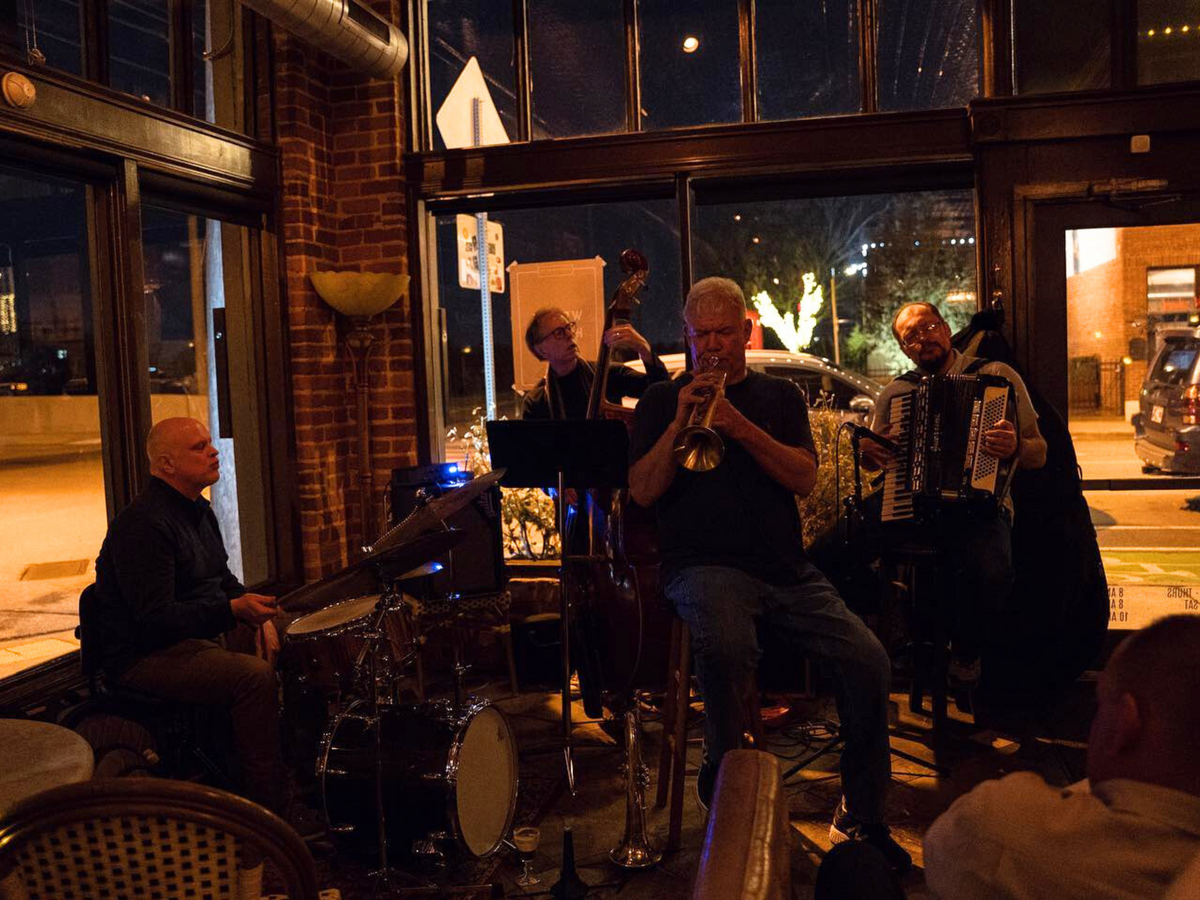Tulsa
Jazz Raises Monday Nights From The Dead
by | Sep 6, 2023 10:03 am
Post a Comment | E-mail the Author
Posted to: Music

I am a jazz simpleton. Everything about a live jazz performance is as astonishing to me as a no-look pass (and I am probably even worse at playing basketball than I am at playing jazz). It’s all a dissonant, musical math I will never fully understand despite sort of knowing how playing music works. Incredible technical feats designed to sound as effortless as possible? Impossible. Decades of rigorous artistic study tucked into the front corner of a bar on a weeknight, patrons flitting in and out the front door within inches of the players? Unthinkable.
But Hodges Bend has been hosting these jazz nights for a decade now, cultivating a very specific East Village vibe on an otherwise dead Monday night in the neighborhood: the nearby restaurants and bars are all closed on Mondays. With a downbeat at exactly 9 p.m. — it is Monday, after all — a rotating group of musicians treats Hodges to jazz crowd-pleasers with half the room intently listening up front and the other half seated far enough away to enjoy the ambience without the potential eye contact. The setup is as much meant to be heard as to be seen, and you can pick your poison via reservation or good luck.
On the evening of Aug. 28, saxophonist Mike Cameron called Thelonious Monk tunes to a trio rounded out by drummer Chad Henderson and pianist Scott McQuade. McQuade also filled in for an absent bass player on the low end of the piano, and when I say that, I mean he alone sounded like two separate musicians performing together in perfect time.
The whole performance was a cacophony of sax, drums, keys, chatter, cocktail shakers and espresso pulls. Cameron, sans microphone, was light on the crowd talk and masterful on the saxophone (an instrument my ears have traditionally had a fraught relationship with due to its aggressive and often unnecessary insertion into rock ‘n’ roll). As a one-time band student, I appreciate Cameron’s capacity not just for notes but for tone, even in the highest high and lowest low registers of an instrument that when it’s played correctly is profoundly beautiful and when it’s played incorrectly is profoundly unlistenable. I said, aloud, “This is the first time I’ve ever wanted to hear more saxophone.”
McQuade, an expressionless magician, imperceptibly tossed and received solos to and from Cameron and Henderson, an amalgam of improv and tradition that only works if everyone understands the language of the genre, which transcends the concept of just memorizing a song to play. Probably the most thrilling expression of this was the trio’s version of Monk’s “Bright Mississippi,” a contrafact of “Sweet Georgia Brown,” where the familiarity of the key and structure made each flourish, start and stop a delightful little surprise. (Hat tip to the jazz-understander I brought with me for clarifying it was a contrafact — a piece of music that lays a new melody over the chord progressions of an existing piece — and not just a topsy-turvy version of a song I already knew.) Each song ended with wordless communication between the players, hurtling to a stop like three marionettes falling to the floor after untangling from an intricate dance.
“Babik” by Django Reinhardt at Hodges Bend.
This is likely as entry-level a jazz listening experience as is readily available in Tulsa, what with the lack of cover charge and playing the hits. It’s also one of the highest levels of technical musical skill you can witness here on just about any night of the week.
Next Jazz Night at Hodges Bend: Sept. 11.
Next from Becky: Tom Skinner’s Science Project at Thelma’s Peach.